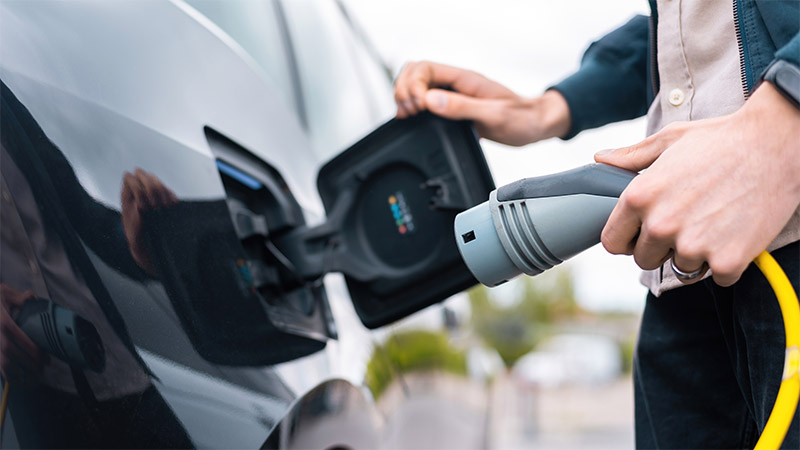By James Plaskitt
It’s a black rock. It has the atomic number 3. It’s one of the lightest metal elements with strong electrochemical reactivity. It has a vital role to play in decarbonising our future. And a lot of it sits underneath Portugal. Is lithium set to give the country its 21st century gold rush?
In the urge to move away from consuming fossil fuels, and to reverse climate change, new technologies are emerging in many sectors, and most noticeably in transport.
Governments have ordered the end of petrol and diesel engines, and the race is on to bring electric vehicles to the market. EVs need batteries, and the most efficient battery technology available at this stage is the lithium-ion battery. So the world is in search of lithium. Demand is expected to grow tenfold by the end of this decade, and current lithium production is set to fall short of available supply within five years.
The European Union has adopted a policy to develop its own battery technologies and to achieve autonomy in terms of manufacture and distribution. If that is to be achieved, then EU vehicle and battery manufacturers will need to turn away from the current sources of lithium – predominantly Chile, Bolivia, Argentina and China. Instead, step up, Portugal – believed to be sitting on the EU’s largest lithium reserves, recently estimated to be around 60,000 metric tonnes – four times China’s current annual extraction level.

Uyuni salt flats in southwest Bolivia where there is a large reserve of lithium
The government has already acknowledged the potential benefits to the economy of this fortunate geological endowment and set an ambitious national lithium strategy, declaring the ambition to make Portugal a “world-leading power in battery technology”.
The inward investment is already beginning to happen. Galp has teamed up with Sweden’s Northvolt in a €700 million joint venture to build Europe’s largest lithium conversion plant, aiming to build 700,000 EV batteries by 2026. The location of the development has not yet been decided but is likely to be in the north of the country, close to the known deposits.
Lithium extraction is not new to Portugal. The country currently mines around 900 metric tonnes a year – 11% of global output – mainly for use in the glass and ceramics industries. But the demand for EV battery production will require a far higher output. Consequently, the government is already working on identifying mining zones and preparing licences for extraction. Two have already been awarded and eight more are expected to be issued during the rest of this year.
The government has its eye set on the economic benefits: higher levels of foreign investment, more jobs, more exports and more revenues. Surely, sitting on such substantial deposits of one of the world’s most sought-after raw materials has to be unreserved good news?
As ever, it isn’t quite that simple. Portugal’s deposits are in the north, and 28% of the land area covered by the first round of mine zoning is already nationally protected for its natural beauty. There is fierce local opposition to the development of mines, especially as the preferred method is open cast. Local opposition groups are fighting to defend agricultural land that would be lost, and also claim that water supplies would become contaminated.
Last year, the government issued an Environmental Impact Assessment. It broadly backed extraction, arguing that the development of lithium mining in Portugal would help with global decarbonisation and declaring that the risk to water supplies was “very low”. But local groups have challenged the findings, and also expressed concern that they were not part of the consultation.
Lithium is undoubtedly the ‘new gold’ and Portugal has been provided with a bounty, and understandably it wants to be a big part of meeting the demands of a market estimated to be worth €250 billion by 2025. The new government will find itself having to achieve a balance between the lure of money and technological prowess against the local environmental consequences of permitting a new gold rush.
James Plaskitt was an MP in Tony Blair’s government in the UK and is now retired in the Algarve.













